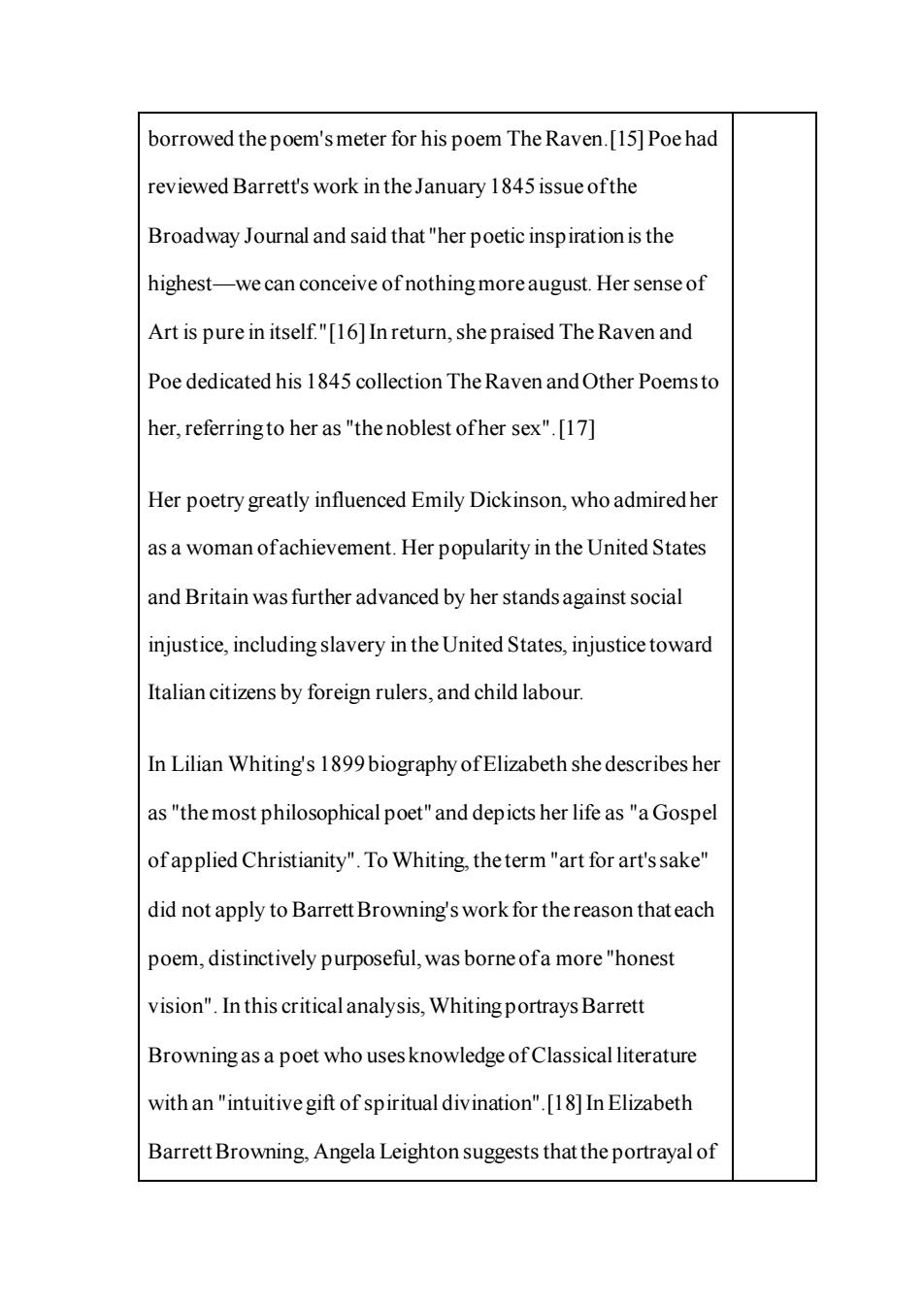正在加载图片...

borrowed thepoem's meter for his poem The Raven.[15]Poe had reviewed Barrett's work in the January 1845 issue ofthe Broadway Journal and said that"her poetic inspirationis the highest-we can conceive of nothingmore august.Her sense of Art is pure in itself."[16]Inreturn,she praised The Raven and Poe dedicated his 1845 collection The Raven and Other Poemsto her,referringto her as"thenoblest ofher sex".[17] Her poetry greatly influenced Emily Dickinson,who admired her as a woman ofachievement.Her popularity in the United States and Britain was further advanced by her stands against social injustice,including slavery in the United States,injustice toward Italian citizens by foreign rulers,and child labour. In Lilian Whiting's 1899biography ofElizabeth she describes her as"themost philosophical poet"and depicts her life as"a Gospel of applied Christianity".To Whiting,theterm"art for art's sake" did not apply to Barrett Browning's work for the reason that each poem,distinctively purposeful,was borne ofa more"honest vision".In this criticalanalysis,Whitingportrays Barrett Browning as a poet who uses knowledge of Classical literature with an"intuitive gift of spiritual divination".[18]In Elizabeth Barrett Browning,Angela Leighton suggests that the portrayal of borrowed the poem's meter for his poem The Raven.[15] Poe had reviewed Barrett's work in the January 1845 issue of the Broadway Journal and said that "her poetic inspiration is the highest—we can conceive of nothing more august. Her sense of Art is pure in itself."[16]In return, she praised The Raven and Poe dedicated his 1845 collection The Raven and Other Poems to her, referring to her as "the noblest of her sex".[17] Her poetry greatly influenced Emily Dickinson, who admired her as a woman of achievement. Her popularity in the United States and Britain was further advanced by her stands against social injustice, including slavery in the United States, injustice toward Italian citizens by foreign rulers, and child labour. In Lilian Whiting's 1899 biography of Elizabeth she describes her as "the most philosophical poet" and depicts her life as "a Gospel of applied Christianity". To Whiting, the term "art for art's sake" did not apply to Barrett Browning's work for the reason that each poem, distinctively purposeful, was borne of a more "honest vision". In this critical analysis, Whiting portrays Barrett Browning as a poet who uses knowledge of Classical literature with an "intuitive gift of spiritual divination".[18]In Elizabeth Barrett Browning, Angela Leighton suggests that the portrayal of